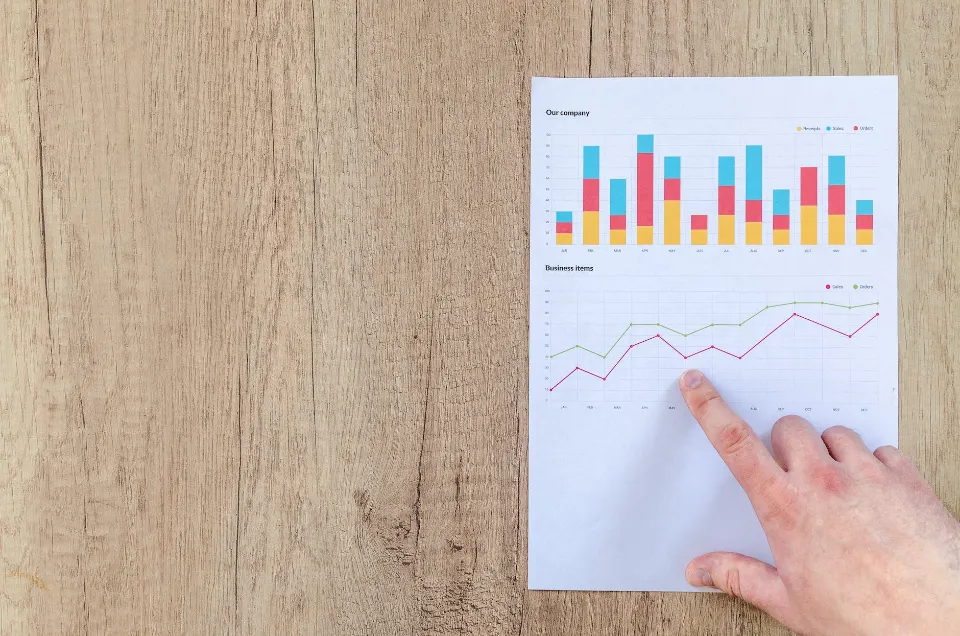With this advice on how to rise to the occasion, you can develop new skills, persevere through the inevitable hiccups, and boost your self-assurance as a data analyst.
Data analysis can occasionally be more difficult to learn than other technology-related fields due to the highly technical skills required to perform data analyst jobs.
But with those challenges come rewards; with the current global shortage of data professionals, the role of Data Analyst is in demand, meaning higher pay and better job security.
This article will cover the reasons why some people struggle with data analysis as well as the qualifications you’ll need to land a great job.
Is Data Analytics Hard?
Since the ability to execute statistical positions requires highly technical skills, it might be harder to master than other technological disciplines. The analysis of data is often thought to be difficult. It is a demanding profession that necessitates technological and mathematical skill study.
You also need to be familiar with the methodologies, best practices, and concepts used in the field to be a successful information analyst.
It will be crucial that you put careful thought into your work because your main responsibility will be to look at the necessary performance measurements and develop efficient methods for performance improvement.
But that doesn’t mean that you can’t end up being a very good statistician. You’ll need to spend some time getting to know the best practices in the industry.

Why is Data Analytics Hard to Learn?
Here are reasons why data analytics is generally considered difficult for beginners:
- Mathematical skills. Because data analytics is a STEM field and is closely related to mathematics, it is necessary to be proficient in math to be successful in this field. As a data analyst, you should understand how the calculations were made even though most of the math is done by software and algorithms.
- advanced technical abilities. Data analytics requires advanced technical skills, in contrast to some other IT-related professions, because it frequently involves complex systems and a large amount of data. Because you must be as accurate as possible with your findings, the procedures and practices are more standardized.
- Research skills. Knowing where to look for data that can be used to identify issues or assess performance is a crucial part of the process of data analytics. As a result, identifying and determining data requirements also requires good research skills and an acute eye.
- Continuous learning. New trends, business practices, and data analytics tools are constantly being developed in this field, so it’s important to stay up to date with these developments if you want to stay competitive. Following the most recent business trends will help you stay competitive in your field by increasing your knowledge and making you more adaptable.
How Long Does It Take to Learn Data Analytics?
The different available pathways affect how long it takes to learn information analysis and become a statistician. Additionally, it depends on your level of technical knowledge and experience and whether you’re a complete novice.
The first step is a four-year bachelor’s degree in computer science, and then there are specializations like certification programs or a master’s degree in information analysis.

Therefore, if you choose this course of action, it could take up to 4-5 years. Your four years of education, any additional information analysis training or credentials, and any prior work experience would be considered.
How to Get Started With Data Analytics?
So how does one learn data analytics? Should you watch as many YouTube tutorial videos as possible or return to college?
In actuality, obtaining a degree from college isn’t always necessary. You can put yourself on the right career path by combining various methods for learning data sets and analytics.
Build Your Foundation
You should start from scratch and establish your foundation before moving on to any other topic. You must learn certain technical skills before using data sets and tools because data analytics heavily relies on mathematics, databases, and other specialized knowledge.
Here are some of the foundational skills and core concepts you should focus on:
- Statistics
- Python/R
- Data types and structures
- SQL
- Data cleaning and preparation
- Data visualization
You can conduct self-study by reading books, watching videos, or enrolling in courses in these specific subjects.

Utilize Free Resources
Thankfully, there are plenty of free online resources you can use to lay a foundation and learn more about data analytics—and even data science.
If you learn better visually, YouTube has a ton of video tutorials for people learning the fundamentals of data analytics, such as what it is, how it’s used, and what kinds there are.
In a similar vein, Codecademy’s free basic subscription can be used to learn programming languages like Python. Additionally, Kaggle, the data science, and machine learning community offers a number of free courses on data analytics.
Take a Course
Free resources are useful, but taking specialized data analytics courses is the best way to get ready. Your best option is to enroll in an online course because they provide more flexibility and convenience. You can try to find a course close to you, but that isn’t always the best idea.
The benefit of taking a course is that you can learn from experts, which may improve your chances of landing a job. You can convince potential employers that you are qualified to work in data analytics by displaying your course certification.
At Springboard, you can find career-focused data analytics courses that combine project-based learning with one-on-one industry mentoring.
Ask for Help
You won’t get very far without asking for help when you need it because learning data analytics from scratch can be challenging. If you’re unsure of something, don’t be afraid to ask an instructor, mentor, or friend who has experience in the industry.

Ten Tips for Learning In-demand Data Skills
Here are ten tips for learning data analytics:
- Skill in data is an investment in your future, so keep that in mind.
- Take an online course to develop your fundamental skills.
- Google Data Analytics Professional Certificate
- Spend a little time each day honing your data skills.
- Errors should be viewed as teaching moments.
- Develop your skill set as a data analyst gradually.
- Utilize practical data projects to hone your skills.
- Engage with the data community.
- Pay attention to your professional skills.
- Engage in lifelong learning.
- Gain an understanding of the how, what, where, when, and why of data skills.
Conclusion: Learn Data Analytics Now!
If you’re considering pursuing this career but aren’t sure if this major is best for you? We sincerely hope that this article’s solution helped you.
Though Data Analysts come from a variety of educational and professional backgrounds, it’s important to emphasize that these positions do call for a certain level of technical skill and solid working knowledge of various programming languages.
Despite being specialized, it’s still a very technically challenging field. In other words, embrace lifelong learning because the industry is changing quickly.
FAQs
Is It Stressful Being a Data Analyst?
Several data professionals have defined data analytics as a stressful career. It is time to reconsider your plans and make a well-informed choice if you intend to pursue a career in data analytics or science.
Is Data Analytics a Lot of Math?
As with any scientific career, data analysts require a strong grounding in mathematics to succeed. Before figuring out how to become a data analyst, you might need to review and, if necessary, advance your math skills.

